Today’s a serious one and includes a content warning: I’ll be discussing domestic violence and intimate partner abuse. So take care and skip this one if you need to. If you’re in an unsafe situation, or know someone who is, you can contact the National Domestic Violence Hotline at 1.800.799.SAFE (7233) or by texting “START” to 88788.
I’m writing this not to solve the problem or offer solutions, but to raise awareness. April is financial literacy month and I cannot think of a more pressing topic to address because:
Up to 99% of domestic violence victims experience economic abuse during an abusive relationship, and finances are often cited as the biggest barrier to leaving an abusive relationship (National Coalition Against Domestic Violence).
The Prevalence of Intimate Partner/Domestic Violence
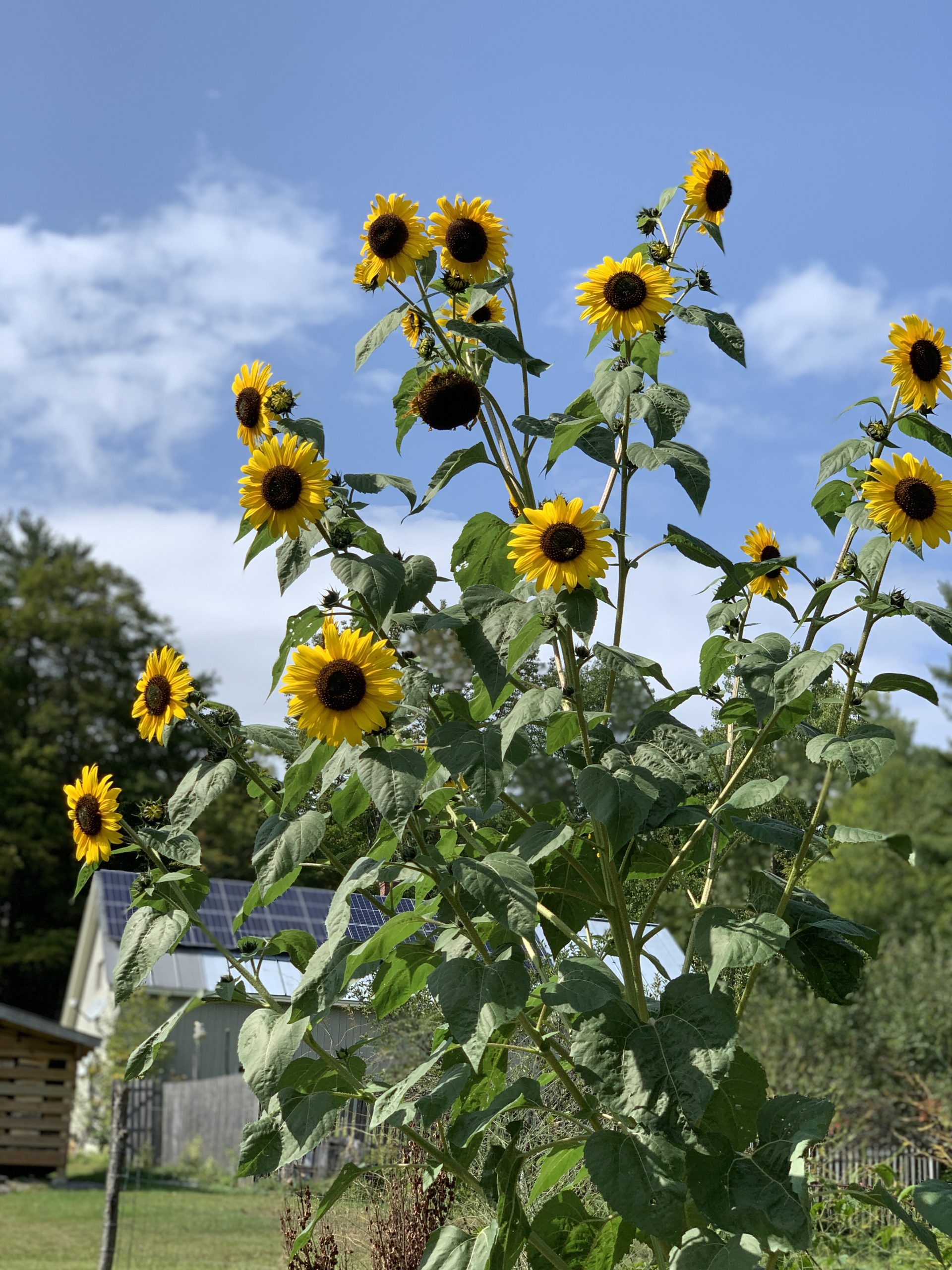 I serve on the board of my local domestic violence support/prevention organization and I’ve been thinking for years that I should write about financial abuse. I’ve delayed because I didn’t know how to broach the topic or make it “interesting” or “fun.” Well, it’s not fun and there is no easy on-road to this conversation, so I’m just going to go for it.
I serve on the board of my local domestic violence support/prevention organization and I’ve been thinking for years that I should write about financial abuse. I’ve delayed because I didn’t know how to broach the topic or make it “interesting” or “fun.” Well, it’s not fun and there is no easy on-road to this conversation, so I’m just going to go for it.
A Frugalwoods reader emailed me a few months ago to share her story of surviving domestic violence and encouraged me to write a post about it because, as I’ve learned:
“Economic abuse is a very common reason victims stay in abusive relationships” (National Coalition Against Domestic Violence).
In other words, victims often don’t leave their abuser because they can’t afford to.
To be transparent, I’m not a survivor and don’t have first-hand experience with domestic violence. Please know I’m writing from the perspective of a volunteer and an advocate for survivors, but not as a survivor myself. Additionally, I’m not a professional domestic violence advocate or therapist, so my knowledge is not as thorough or informed as a professional’s.
You, like me, might assume you don’t know anyone suffering from violence in their home; sadly, you’re probably wrong. You probably do know someone. You just don’t know you know.
 According to the National Coalition Against Domestic Violence:
According to the National Coalition Against Domestic Violence:
1 in 3 women and 1 in 4 men have experienced some form of physical violence by an intimate partner.
Additionally:
Only 34% of people who are injured by intimate partners receive medical care for their injuries.
Furthermore, domestic violence isn’t just physical in-home violence, it also encompasses, but is not limited to:
- Stalking, either in-person or online/via phone
- Rape and sexual coercion/violence/abuse
- Harassment of any type
- Economic abuse (including restricting a victim’s ability to work/keep a job, have reliable transportation, etc)
- Emotional/psychological abuse (such as: not allowing a victim to connect with friends and family)
- Technological control or abuse (for example: restricting a victim’s access to technology/the internet)
- Homicide
Understanding Domestic Violence: The Power and Control Wheel
This chart is a concise, thorough examination of the many tentacles of physical and sexual violence, which I find helpful in illuminating the various forms and evolutions of abuse. The only beef I have with this chart is that it uses the pronouns “she/her” when research shows that plenty of “he/hims” and “they/thems” are also abuse victims and survivors.
I want to focus on the economic impact of intimate partner/domestic violence today, but I think it’s useful to remember that the ramifications of abuse are broad, horrific and likely much more prevalent in your community than you may realize. Let’s zero in on the “Using Economic Abuse” section of this chart.
What Is Economic Abuse?
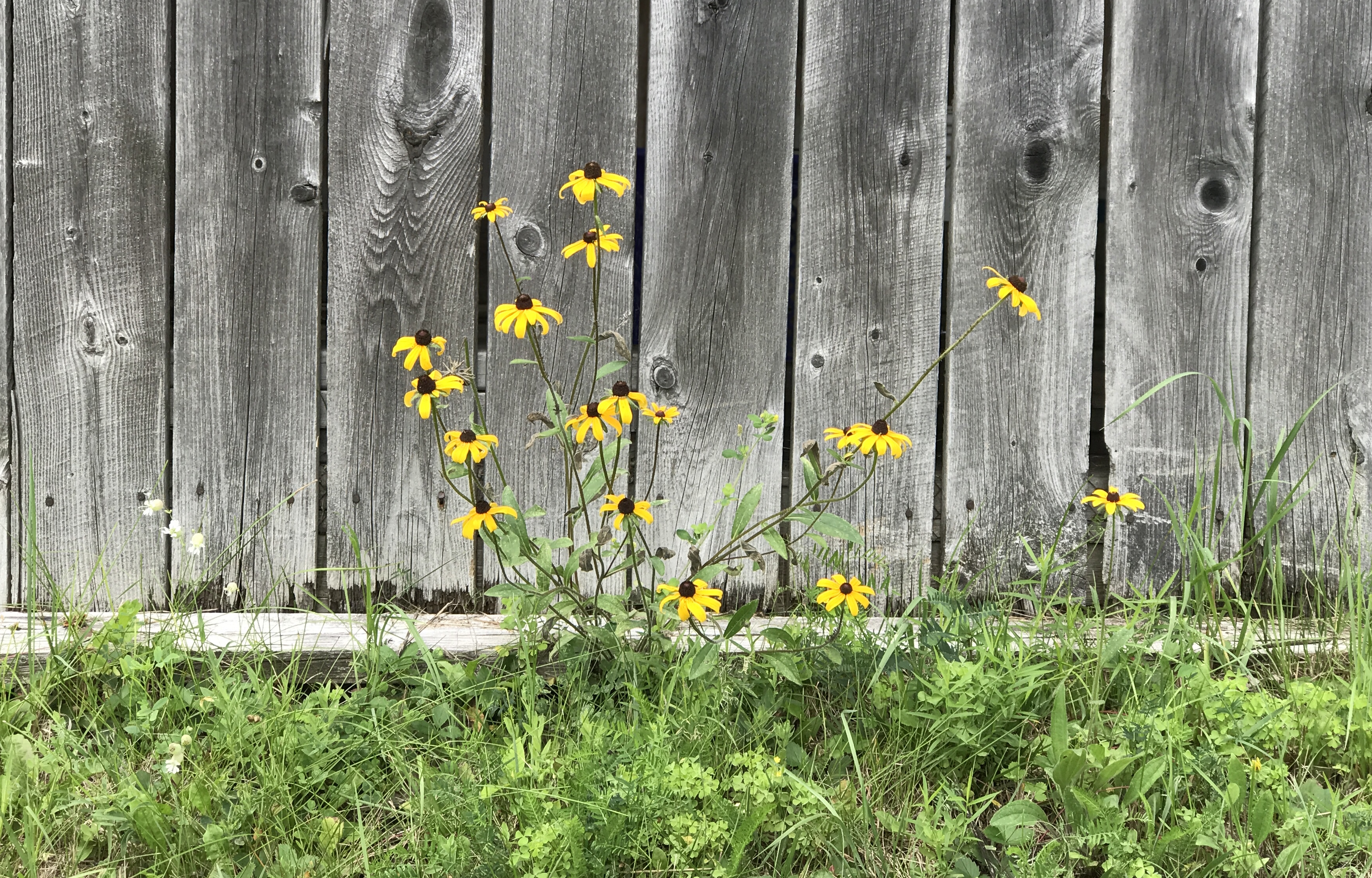 The National Coalition Against Domestic Violence defines it as follows:
The National Coalition Against Domestic Violence defines it as follows:
Economic abuse involves maintaining control over financial resources, withholding access to money, or attempting to prevent a victim/survivor from working and/or attending school in an effort to create financial dependence as a means of control.
Victims and survivors are often forced to choose between staying in abusive relationships and poverty or even homelessness.
Many of us–myself included–take for granted our ability to work how and when we want and our ability to manage our own money. For people in abusive relationships, money can be used as a tool for control, isolation and disempowerment.
To more deeply understand economic abuse, I encourage you to watch this video interview with Terera, a financial abuse survivor.
Why Don’t They Just Leave Their Abuser?
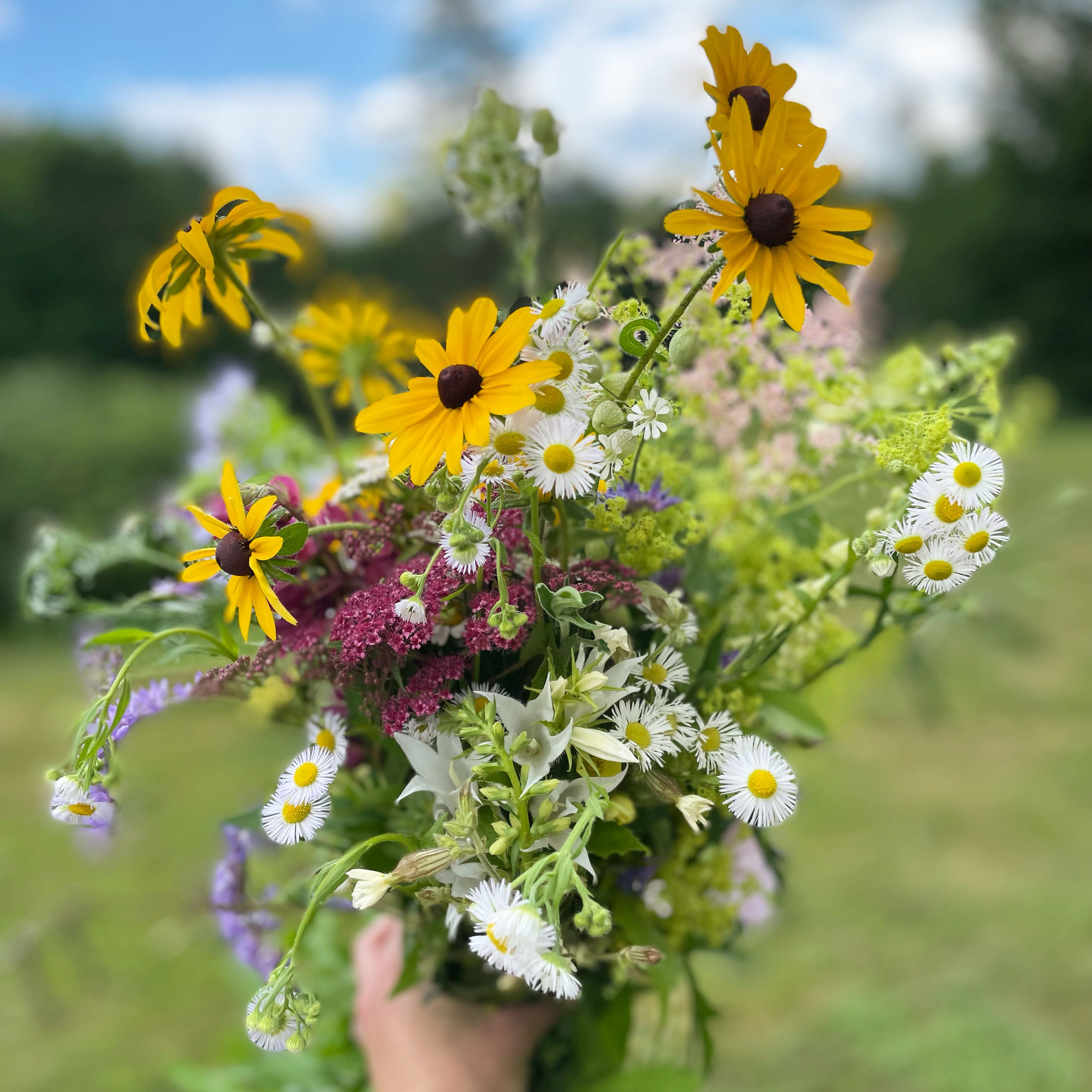 This is the response I used to have when I read about people trapped in abusive relationships, because I didn’t understand that it’s not that simple. When your financial life is intertwined with another person–or completely controlled by that person–it’s challenging to extricate yourself in the best of circumstances.
This is the response I used to have when I read about people trapped in abusive relationships, because I didn’t understand that it’s not that simple. When your financial life is intertwined with another person–or completely controlled by that person–it’s challenging to extricate yourself in the best of circumstances.
Most of us know someone/are someone who has gotten divorced. And we know the incredible effort, time and legal involvement that usually takes place to ensure both parties have an equitable division of the previously jointly-held resources. Now imagine that situation with a violent, abusive partner. Many victims/survivors come out of an abusive relationship with no assets and often with coerced debt/ruined credit (debts the victim was forced to assume on behalf of the abuser).
Plus, as I learned from the Executive Director of our local support organization, the answer victims most often give to the “why don’t you just leave” question is:
Because then they really will kill me.
Next Steps
1) If this enrages you, or motivates you, or makes you feel like you need to do something, please consider volunteering for your local domestic/intimate partner violence organization.
- These nonprofits are everywhere, probably right under your nose and you don’t even realize they’re there. I didn’t know until I looked.
- Much like the survivors they serve, these organizations often fly under the radar to protect their clients. Seek them out and see how you can help.
 2) If you don’t have time to volunteer, please consider making an annual donation to your local domestic/intimate partner violence nonprofit. Trust me, they need your money.
2) If you don’t have time to volunteer, please consider making an annual donation to your local domestic/intimate partner violence nonprofit. Trust me, they need your money.
- Since domestic abuse isn’t something people like to think about or talk about, it’s also something people don’t consider supporting financially.
- It’s a lot more palatable to donate to a soup kitchen or an animal shelter. It’s a lot more challenging to donate to a domestic violence support organization because it exposes the prevalence of abuse in our own communities.
- So please, consider how you might help out. If you live near me, feel free to be in touch directly (mrs@frugalwoods.com) because our local organization is in need of volunteers right now.
3) If you’re in an abusive situation, please know there are resources available to you when you’re ready to reach out.
- There are trained advocates who can help you navigate the legal system, provide you with housing assistance, financial support, counseling, a safety plan and more. Reach out when you’re ready.
- You can start with your local organization or by calling the National Domestic Violence Hotline at 1.800.799.SAFE (7233) or texting “START” to 88788.
Resources
 The Frugalwoods reader who shared her survivorship story with me also sent along this incredible list of resources.
The Frugalwoods reader who shared her survivorship story with me also sent along this incredible list of resources.
From the National Network to End Domestic Violence:
- Financial Abuse Toolkit
- Financial Tips for Survivors: Six tips for domestic violence victims and survivors that are seeking to secure their financial future
- Financial Abuse Fact Sheet
From the National Coalition Against Domestic Violence:
From the Allstate Foundation:



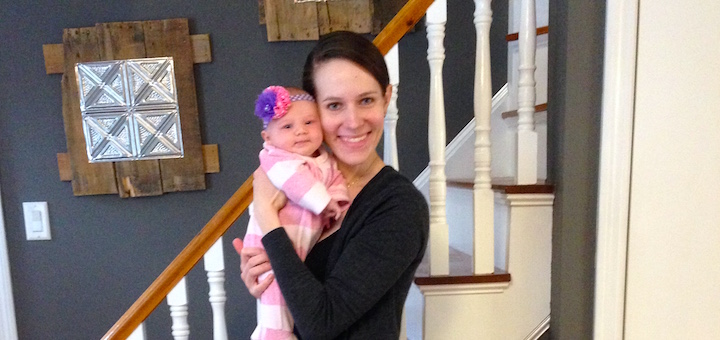


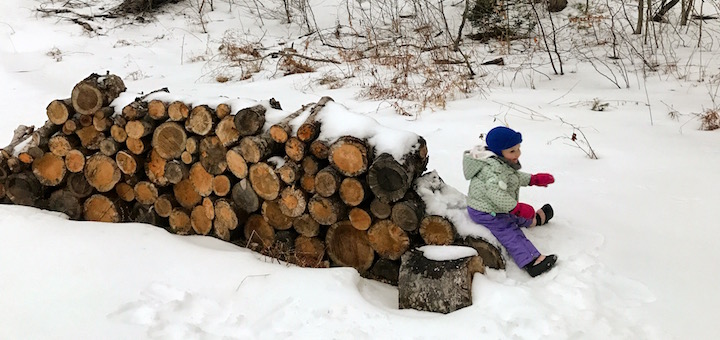


Thank you!!! As someone who has worked in the DV field for 15+ years you did a fantastic job outlining this issue with all the appropriate resource links. Financial abuse is probably THE barrier for most survivors and I love that you used this platform to educate on the topic!
This is an excellent article. I know personally SO, SO MANY people (women mostly, though of course it can happen to anyone) where this is a large factor in not leaving. It’s not always a huge, glaring thing either, it can be quite subtle, and not immediately ”oh my word he refuses to let you buy food to eat!!”, but more ”well, if you must go and have coffee with those friends, that’s fine, but remember it’s expensive, and anyway, don’t you have anything else to do, we’re really tight for cash this month” type guilting, which leads on to isolation (through embarrassment and shame) and so it goes.
Unlike physical abuse or grand acts of violent, aggressive behaviour, it is so hard to know precisely when it’s tipped over into coercion, rather than, say, genuinely not having the money for drinks out for a short time or similar. Fake concern and gaslighting is almost always a factor too, along with being hyper-vigilant over every penny.
My mum, a 30’s baby, 50’s young adult, quite traditional in her views, was absolutely clear that I, her daughter, should always, always have what she called ”running away money”. She idolised my husband, sided with him almost always, so it was not a comment on our relationship, but the idea of being financially beholden was anathema, as she’d watched her own mum, my beautiful, accomplished granny, struggle after leaving a very unhappy marriage to a generally-decent man, because her best earning years were spent building his business and looking after their children. Access to money, even if never used, is crucial, however it works.
I love that you mentioned “running away money”! I worked at a low-income all-girls school for years and thought on so many occasions that we should educate the girls about this (only the name I heard for it was a f**k off fund – same concept, slightly more colorful name :)) Maybe there’s a follow-up post Mrs. Frugalwoods could write about the importance of having a fund like this, especially for women.
My father used to read aloud to me and my sister articles about men who have hurt or killed their wives. Then he would look at us and say, “The first time some man hurts you run and do not look back. Make sure you have money hidden so you can run away.” I told my fiancé this story and on our wedding day he gave me a silver box with eight gold coins so that I would never feel like I could not leave him. Thirty nine years later I have never been tempted, and the coins have risen spectacularly in worth, but it was a nice gesture.
My grandmother is the same age as your mother and to this day keeps her own bank account and my Grandpa isn’t allowed to know how much she has, because she’s convinced he’d spend it all. The have been happily married for 65 years and she has no plans to leave him, but that need for independence is strong!
I was amazed, when I finally left my first husband, that I actually had more money because we were always so broke on two incomes.
Once I wasn’t paying for his drinking and car and whatever else, I did (frugally) okay on my own.
Aside from continued abuse/stalking and him actually taking my kids, it was my biggest fear that on my own I wouldn’t be able to provide for my kids in a decent way. I remembered being quite poor as a child (not having money for any extracurricular activities or books etc.) and wanted to do better for them.
❤️
Thank you for this incredibly well-written article.
This is such an important and well written article. I was not even really aware of emotional and financial abuse until I watched the Netflix series Maid. I felt that it gave very good insight on this issue and highlighted just how difficult it is for women to leave an abusive situation especially in the USA where the system makes it impossible for women to receive financial assistance when help is needed. It’s a gruelling watch but recommend it.
The father of my children was emotionally abusive, and watching maid made me realise how much worse it could have gotten. I was beset lucky to get out (and stay out) as early as I did, and one of the biggest reasons I could was that I had money and a good job. It could have easily been a different story without those resources and family support.
Elizabeth,
Thanks for writing about this. The economics involved in staying in abusive relationships is so important to talk about. Financial security is the key to the door when getting out any terrible situation, and so many people get trapped because the abusers hold that key (yet another level of their abuse) Individuals suffering in bad relationships feel disrespected and ashamed by their lack of financial independence (especially in a culture so dedicated to having “stuff” in order to prove you are a “winner”) so they remain, feeling that they need to sacrifice their lives for the sake of others (their children more often than not), since that is the only collateral they feel that they now have left to offer the world. Left lost and feeling shame on so many levels.Teaching people that they are not alone when trapped but that there are ways to get out of that room, and help is available and where to find it is life changing. Thanks so much for your work teaching everyone about financial security, freedom and self respect plus your work with those in need. The world needs more people like you! You are a life changer. You have certainly changed mine.
It’s why I struggled to leave but I was fortunate to have a network of friends and family to help me get out. Not every one has that so thank you for posting these resources. Staying away, and even following through with divorce, is also hard because you love so much of the person that isn’t the abuser, and there honestly is a lot of it. It’s heartbreaking to let that, and the hope of what it could have been, go.
Ten years later, I’m in a healthy marriage with a stepson and a daughter. We own a modest home in a great neighborhood, share all of our finances (there is no his or hers, even in our retirement accounts), and I’m even able to stay home with our toddler, without fear, because we have worked together to create an equitible life. There is hope.
I’m a Brit, and whilst the issues are the same here as anywhere, the systems are different. Regardless, below is a link to the money section of the Women’s Aid website. And yes, men can be victims of domestic abuse but the majority of prolonged abuse is against women. Also, there I can be abuse in same-sex relationships. I work as a Court volunteer supporting victims and witnesses who attend to give evidence, including trials for domestic abuse. One thing I have learnt is that domestic abuse occurs in all socio-economic classes, and the most intelligent of women can become trapped and have their confidence destroyed. In the UK the term domestic abuse is preferred to domestic violence, as so much abuse does not include physical violence.
https://www.womensaid.org.uk/the-survivors-handbook/money-issues/#1447868257759-a9e74b36-43f2
Hello! I’ve never commented before but wanted to chime in to say I have often worked with survivors of DV, and another form of economic abuse I’ve seen (in addition to those you highlighted above) is the abuser doing whatever possible to sabotage a persons job – showing up there and causing a scene, refusing to hand over the car keys to get to work, etc. eventually clients would get fired from their jobs or quit out of shame and embarrassment. Or the abuser locking up important financial documents so my client has zero knowledge of their own financial accounts, bills, etc. Another thing I wish the general public knew is that DV can be such a playbook – I see the same actions taken by many many different abusers. Isolate, denigrate, accuse of cheating to keep them off their balance. The methods of economic control are a huge one, and not often legally recognized – in the states I’ve worked economic abuse isn’t the kind of abuse that will get you a protection order. Anyway thank you for bringing this up.
Thank you for posting this. While I am not a survivor myself, my best friend and my sister-in-law have both been in abusive relationships. I can’t wait to send this to them. They are not in those relationships anymore, but the resources you’ve provided and the encouragement to find local groups is super important. You were right in the beginning to state that this topic is neither “fun” nor “interesting”, but it is IMPORTANT! The invisibility of abuse is so rampant in our culture that people need to see the signs. Also, I agree that the abuse of women overshadows the abuse of men. Just because it isn’t as apparent, it doesn’t mean it’s not there. So again, thank you. I’m positive you’ve helped reach out to more victims and survivors than you know and they will be able to save themselves with these tips and this support.
Anyone reading this that needs help, please know that you are not alone in this fight, no matter how your abuser makes you feel. Even if you’ve been cut off from your friends and family, the people in these important organizations and groups are understanding and will not leave you to fight this battle alone. You are not weak for leaving or for asking for help. You are deserving of love and the right to a happy, successful life.
Thank you for the pronoun clarification. It’s one of my biggest beefs from when I worked in DV world. Language inclusion matters and can save lives
My daughter suffered from this – never anything ‘ physical’. She got out – bbut at every turn, her ex tries to control everything in his favour. Several years on she still has to suffer rants, manipulation, whinging, and threats – about how HE is the victim. At least she has control of her own finances now. She had to be/ has to be very strong for her two children.
More enlightening articles like this are needed.
I also did better financially after divorce. I hadn’t realized just how out of control his spending was. I counsel absolutely everyone to wait until they’re done with school and have stable income before marriage or kids. My local DV group has so many newly homeless women with no skills to get good paying work and it’s just heartbreaking. I was fortunate enough to have full time work and a master’s degree so it was much easier for me. I give $100 every year to them now and am glad to do it.
Thank you very for this very important discussion. Since this is a public forum, I will not get personal. However, am well aware of economic abuse and domestic violence. I am glad that you serve on the board of my local domestic violence support/prevention organization. I can imagine that many victims are very reluctant to seek help until situations become desperate and ugly. I think your posting encourages and empowers victims to seek helpf. Perhaps perpetrators of economic abuse can be enlightened by your discussion to change their behavior in positive ways. Please continue the discussion with more postings and personal testimonies. It would be helpful to know more details about a victim’s past and present situation. Terera’s testimony was a great introduction. Thank you for the call to action for volunteers and financial donations to local domestic violence organizations.
Liz, thank you so much for this post. I would like to add, as a survivor, that once you get out, there are still forms of financial abuse. In Wisconsin, it is a “father’s rights” state. So, it’s VERY hard to prove abuse (aka there were no hospital visits) and the father pays 17% for one child or 25% for two children from his income. That is NOT what it costs to raise a child. At all. And I had a decent job. So, trying to raise your kids even “middle income” style is difficult. They do not have to pay for, say, music lessons if children are gifted. Or school sports fees. Or doctors fees. He didn’t even have to pay for the therapy fees for the kids to help them understand the abuse/divorce was not their fault! They don’t have to help take your kids anywhere – so you have to chose “do I advance and earn more” or “do I do the best for my children and run hither and yon to get them to the activities they qualify for/deserve” (and yes, I get deserve is my opinion…) They do not have to help with any college – even though this father has a ton of money. He bought a nice patch of land for hunting; I ran my kids to after school jobs while I freelanced at night to pay for all their activities. My point is do not pity me – my point is – it doesn’t always end when you “get out.” It took until my youngest graduated high school for me to feel “finally free” because there were no more child support payments, my kids had scholarships/jobs to pay for college, and I could get a job that was best for me to plunk money into my retirement. I have gained $350,000 in retirement by living frugally these past ten years, and I’m not that high of an earner. A parent’s abuse steals from the partner and the children for a very long time. Thanks for anyone who reads this – really, really donate to those domestic abuse groups!! I did not have to use their services, but I do donate and when/if I ever get to retire I do plan on being on the hotline if I can get past my own traumas well enough.
Great topic to cover – kudos to you for using your platform in this way! A friend of a friend is currently going through this and it is just so heartbreaking to hear how things are unfolding. Reminder to folks to donate is especially appreciated – I did part of my AmeriCorps service with a DV shelter and they were always in need of funds!
I’m pleased you’re covering this subject. It’s one I have experienced.
In the UK we’re moving to say domestic abuse instead of violence , so that it covers all types of abuse. People sometimes can think that if it doesn’t involve hitting then it isn’t domestic abuse.
Additional aspects of financial abuse occur when a victim is disabled or otherwise subject to calculations based on household income. It’s the whole household income that is taken into account for some benefits so that the victim may not have access to money because she’s calculated as not qualifying for it, or to save money if she passes a level where benefits change. Same can be true of scholarships.
If there’s no easy access to money, that’s another way to separate a victim from friends and family because there’s no money to travel or socialise.
In the UK there are recent tv adverts about being a white ribbon ambassador, and encouraging men to speak up when they see abuse occurring.
Thank you. I just had a conversation with someone yesterday about her lack of economic control in her relationship. This morning, I sent her this post. I will follow up with her too.
Good for you, Hadilly! That is where it needs to start. Most people are aware of abuse going on in a relationship, but are afraid to broach the subject with the person that needs it the most. We need to get more comfortable talking to others about abuse and mental health as well! It is not always domestic.
Thank you for this important post – I’m so glad to see people incorporating these conversations into the personal finance blog world.
My experience with domestic abuse, particularly emotional, verbal, and financial abuse, is that it is often almost invisible to the people outside of the relationship. Often abusers are very good at putting their best face forward, or casting doubt/blame on the person being abused so that they’re isolated from help. So if anyone ever reaches out to you to say that they’re being abused, or describes a pattern of partner behavior that seems off to you, please support them even if you think their partner doesn’t “look” or seem like “the type” to be abusive. It can really occur to anyone.
I spent many years waiting and hoping for the day my mother would take my brother and me and leave my father. He literally attempted to kill her three times in front of us, stopping only when we either called the police or ran to a neighbor for help. It was awful. It’s been almost 40 years since I ‘escaped’ by going to a college out of state, leaving my younger brother to deal with it. He had told me to go. Then later I learned our father had ramped up the spankings (always when mom wasn’t home from when we were very young through high school) to beatings after I left.
I wish I were writing that as a horror story intro but it is the truth. Mom got divorced a few years after my younger brother finished high school. She got a job, worked her butt off, and when she retired she was surprised at how much her pension pays. She is now nearly debt free, happily single, and has every intention of remaining independent until she dies.
What my brother witnessed and experienced growing up scarred us both in many ways. Neither of us has healthy relationships with each other, money, or romantic partners though we each have plenty of friends. No matter where I am I always identify ‘escape paths’ in case I get uncomfortable ~ and I am nearly 60!
Why my mother did not leave? He would have killed her. Definitely. During the divorce proceedings she was never left alone at night. My brother or I, or one (sometimes more) of our friends would be there with her. She hated it but we as a large group decided she was not going to lose the war when she was at the last big battle.
I do not have the ability to donate financially so I donate gently used clothing, toiletries (I love the BOGO sales; the spare goes into the donation boxes), and any ‘no expiration date’ coupons for child-related items I come across to a local women’s shelter facility that shares them with other shelters in the area. Only one is public-facing and that one rarely has guests for more than one night before they are relocated to a secondary location.
Thank you for posting about this. Resources may be tight but help is out there.
Thank you for this reminder. It’s so important to bring awareness to this issue. With so many things happening in the world, some issues get somewhat lost in the shuffle
Years ago my mom would collect our family items of clothing & household goods to take to a women’s shelter in our area. I’m not sure how she found it, but she didn’t tell us where it was. She’s gone now, and I’ve been donating elsewhere. There’s a thrift store here that supports a women’s shelter, so some items can go there, but I’d like to find a place that will benefit women directly, if possible. I’m going to do some research and make calls to see if I can find a place to bring our donations that will help. Yesterday was my mom’s birthday, and I’d like to do this in her memory.
I am very glad you posted this. This is a topic near to my heart.
I know women who wouldn’t ask for help because of the shame. Why should they be shamed, when they aren’t the abusers? Because they have heard people say, “Why did she marry him? She should have seen that coming.” “Why doesn’t she just leave?” “Yeah, if any man did that to me I’d stop that right in its tracks.” Remarks like this from people who’ve never been abused in any way leave a victim with the idea that everyone is going to sneer at her, rather than help her. She starts to wonder just how stupid she must be to have gotten into this mess. And for (heterosexual) men who are abused, holy cow, they might as well be saying “Look at me, I’m henpecked. My wife wears the pants. I’m afraid of a woman,” if they admit to being abused, way too often. They are viewed as weak and a butt of jokes. I long ago resolved to NEVER say anything like that about domestic abuse. One never knows who is listening.
Our local paper today brought up the fact that two men in town are finally set to start trial in the next two months. Both are now notorious as abusive spouses who killed their wives who were trying to leave them. One even killed his wife’s co-worker who was simply escorting her to get the restraining order so she would feel safer. There were children in both marriages. The other couple’s young baby was found crying, lying in a pool of his mother’s blood next to her body, after the woman’s murder was discovered. I’m not making this up.
A big reason why abuse victims hesitate to go is losing their children by snatching or legal shenanigan’s, which is obvious. A reason not often thought of, however, is that victims are afraid to leave their pets behind. They can find shelter for themselves and their kids, perhaps, but almost none allow pets. You can imagine what the abuser, especially a violent abuser, would do to the fleeing spouse’s beloved pet that was left behind. Pet-friendly shelters need to be created, as well. One might say a pet isn’t worth a human’s life, but if the fear of leaving the pet in the hands of the abuser means the abused won’t leave, then pets need to be addressed as well.
Thanks for this post! Let’s spread it!
Thanks @JD for raising the issue of pets. Threats and violence toward pets is sometimes used to control the abused partner and to imply what will happen should the partner leave. Shelters that accommodate pets would make a difference; unfortunately, in my city most rental accommodation doesn’t allow pets of any kind, so another bar to escaping abusive situations.
Economic hardship, concern for children, safety of pets, in addition to fears for personal safety, so much consider for someone in stressful circumstances. Thanks to all who support shelters in whatever way they are able for those fleeing domestic abuse. Huge thanks to Mrs. Frugalwoods for tackling a challenging and misunderstood issue.
That’s a really good point about pets. My mother in law came from an emotionally (at least) abusive home and while she and her siblings no longer are in that situation my husband and I have noticed that his aunt and uncle have very strong relationships with their pets. We’ve noticed that with other friends as well – that those who come from dysfunctional or abusive situations often have what we would consider an almost irrational bond with their pets. It’s not irrational to them – a pet may be the most loving and stable relationship they’ve had. I hadn’t thought about how that would affect trying to leave an abusive relationship. The pet needs a safe place too. I’ll definitely be thinking about how to help in that area should that come up with a friend or acquaintance.
Thank you for this post. It cannot be emphasized enough. A financial abuser may not hit you or do anything at all violent except legally “steal” your wallet and checking account.
I am a victim of financial abuse. My father was the victim of financial abuse.
If a partner gets addicted to buying things or signs contracts to embiggen your house, you can end up working your tail off and still end up in bankruptcy. I strongly advise everyone who has finances entangled with another persons to see if there is a legal way you can put a stop on purchases above a certain amount. I was away from home taking care of my dying aunt and my husband managed to add a new room to our house at 50K dollars. We had almost nothing in savings. Unscrupulous people will take advantage of the situation. One can marry a very nice person and find that delusions of grandeur or of financial adequacy can motivate unaffordable expenses. I had to give up on a career I wanted badly because my husband was irrational with finances and spending. And if you try to get any kind of guardianship, you will be laughed out of the courtroom. Perhaps because the law still favors the male?
Thank you for sharing this. Its so important.
As far as other ways to help go, in my town, we have a “furniture bank” that provides new and gently used furniture and other household items to people fleeing DV situations so that they have supplies once they get connected with new housing. There may be other organizations that do similar things in other locations. Its a way to give items that are needed directly to the people in need but through a discreet third party to protect privacy.
Liz,
Thank you for this!! Both my now-husband and I were previously in abusive marriages, and the Power and Control Wheel is extremely relatable to both of those relationships. We have been married for ten years now and still express gratitude nearly every single day that we found the courage to leave our ex-spouses.
We have two nearby shelters that are high on our list for donations each year. Hopefully, your message will encourage others to reach out within their own communities.
Thanks for all that you do!
One of our largest banks; Commonwealth Bank of Australia offer a Financial and Family Violence service.
You do have to be a member of the bank for a minimum of 6 months to access this though.
They offer free Financial counselling, set up new bank accounts, arrange external counselling etc.
It was also announced at the end of 2021 that the government would give
“women leaving a violent relationship access to a one-off payment of up to $5,000 to help them establish a life free of violence.”
I wonder where males/non binary fit into this program if it’s only targeting females??
Thank you for bringing this topic to light. I myself needed the reminder of how prevalent this situation is for many.
Financial abuse can unfortunately continue even after a divorce. My father was emotionally and physically abusive towards both of us. The physical abuse only stopped when he developed a rare neurological disease leaving him in a wheelchair. After the divorce, mom had to sell the house and pay HIM alimony even though she was taking care of me. She just retired and has nothing but social security to rely on because she owed half her salary to him. Meanwhile he is sitting on a huge pile of money and refuses to spend anything beyond the cost to survive. I don’t care that he is in a wheelchair now, he doesn’t deserve any sympathy for what he’s done to us. I am unfortunately his caretaker now because he has pushed everyone in his life away from him except me, and I am only sticking around for his money. I only put up with him because that money is my reparations.
After a violent relationship in my late teens/early 20’s I have always ensured I was never in a position where economically I could not leave. My husband is a wonderful man, but even then, the legacy of that earlier experience made sure I was always in work and never dependent. For those of you who sneer at Mum’s who go back to work – you do not know why they are making the choices they are. Never be dependent no matter what.
Back in the ‘70s, my mother was given ‘housekeeping’ by my father and had to plead for any increase, and ‘treats’ were at his discretion, a not unusual situation back then. This was just one aspect of his coercive control, although the phrase was not used then. She took every opportunity to stress to my sister and I the importance of earning a good income and being financially independent. We too are both married to good men, but it remains a valuable lesson for all daughters.
This is your most important post – ever.
From age 19 to 26 I was in a very abusive domestic relationsship. I can still have nightmares despite it being 36 years since I left him. I am quite a strong woman and with a lot of initiative and intelligence, so I am always open about my past, so that people might learn that its everyone who can end up in that situation. Since that relationship I have always ensured that I could take care of my self, even though my husband of 30 years is the best man ever. So my advice to any woman is always to ensure separate bank accounts, make sure that everything is owned equally, making sure of saving towards your own pension fund and make sure that you are fully taking part in every economic decision. If it could happen to me, it could happen to anyone.
Thank you for this post, for your service in your community, and for the commenters, donors, and survivors who have shared their stories! Covid made domestic abuse situations worse.
One control method not specifically mentioned, (I don’t think I saw above), is keeping track of a partner’s cell phone by reading the history or by tracking. Also, moving someone far away from family/friends might be a sign of abuse. Or it might not.
Regarding financial security, if your name is on an account, (credit card, bank, mortgage, retirement, loan, etc.), you are legally entitled to information about that account and can have statements and balances sent to you.
Thank you for this post. If you add on any intersecting identities to economic abuse, it just gets exponentially worse. Immigrant, disability, racism, etc. So much worse. THANK YOU for shining light on this dark corner of the world.
It’s a good idea to always need 2 signatures on a mortgage account, to stop a partner taking out sums of cash without your permission. This is not a bank rule in Australia, but it’s a good idea to do it. I read that in Canada, you have to have 2 signatures, from a couple, to take out mortgage funds- good idea. I’d recommend always using 2 signatures on a mortgage account, and if a partner refuses, then leave that person, it’s an alarm bell about them.
Thank you for writing this post. I’m not a victim and find all of this heart wrenching. My mom always said to us growing up if a man hits you once he’ll hit you again, get out. She said always have a job you can fall back on to support yourself. Fortunately I never encountered this situation but the people in these comments are inspirational for those that are reading who are still ensnared. So many women held hostage over their children it’s just gutting. Father favored laws and states, it’s unconscionable! Thank you for raising awareness, I don’t know what to say I’m just so sorry for what has been endured by people.
Some of these readers’ comments/experiences are just bringing tears to my eyes. Stay strong, impressive women!
This is a great post. And just fyi, some of these financial tips can pertain to spouses of gamblers. When I sought information for my ex-husband’s gambling problem, I was told I should consider a “financial divorce,” i.e. keeping finances separate and safe.
Sorry to post this so late!
I recently watched this CFPB FinEx webinar: Understanding the Women’s Wealth Gap. https://www.youtube.com/watch?v=hmyr7q1IMB4
It’s not as dry as it sounds; the speakers are all very engaging. It’s actually several three female speakers discussing issues that affect women disproportionately (and in the BIPOC community, this is compounded). Here’s the speaker and org line up:
Presenters:
Sonya Passi, FreeFrom
Cindy Hounsell, WISER
Annamarie Lusardi, George Washington University
Sonya actually speaks about intimate partner violence but they all speak about the importance of financial education and preparation for women and each of their organizations provide service. I highly recommend it!